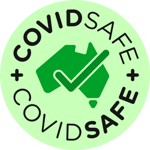With its beautiful beaches, unique flora and fauna and superb food and wine, it’s not surprising that Australia is one of the most desirable travel destinations in the world. From a business perspective, Australia also rates extremely well in terms of its service levels, business opportunities and above-average event facilities. If you are heading to our international shores for a conference, business meeting, seminar or trade show, you are lucky, because you’ll get to experience the best of both worlds!
Here is our guide to travelling to Australia on business.
Visa rules and regulations
Australians and New Zealanders are free to visit, live and work in either country without restrictions, however if you are a foreigner travelling to Australia on business, you will need a valid visa. There are lots of different types of visas available and many of them can be applied for online.
Electronic Travel Authorities (ETA) are suitable for applicants outside of Australia who want to visit for specific tourism or business purposes. These can be applied for through airlines and travel agents, and they allows visitors to travel to Australia as many times as they need within a 12-month validity period for a maximum of three months per visit.
Prohibited or quarantined items
Australia is one of the few countries in the world free of some of the most serious pests and diseases, which protect us from harmful environmental and economic consequences. Its reputation as an exporter of high quality agricultural produce also depends largely on the absence of these blights.
To protect our health and our tourism and agricultural industries, Australia therefore has fairly stringent quarantine requirements. All mail, cargo, vessels and people are screened before entering the country, and travellers to Australia must declare a range of items. These include anything made from plants or animals, including meat, eggs, dairy, seeds, nuts, fruits and vegetables, and things like skins, feathers, wooden articles and of course live plants or animals.
Australia’s quarantine laws also prevent you bringing in drugs, weapons and firearms, and the penalties for breaching any of these Australian laws include hefty fines or even imprisonment.
Certain medications are also subject to controls, particularly if they lead to abuse or dependence. To be safe, before you consider undertaking business travel to Australia, it’s best to have a letter from your doctor. This should state what medications you are currently taking and what your medical conditions are.
Required and recommended vaccines
There are no formal vaccines required before travelling to Australia, however there are a number of routine vaccinations it’s recommended you have before entering the country. These include the polio vaccine, the varicella (chickenpox) vaccine, the diphtheria-tetanus-pertussis vaccine, the measles-mumps-rubella (MMR) vaccine and a yearly flu shot. If you have come from or visited a location where there is infection from yellow fever, then you also need to show proof that you’ve had the yellow fever vaccination.
A number of specific vaccinations should also be considered, depending on where you are travelling. These include:
- Hepatitis A. This can be caught through contaminated food or water, and outbreaks occur throughout the world, sometimes even in countries with a low risk factor.
- Hepatitis B. This can be caught through blood products, sexual contact and contaminated needles. The Australian National Centre for Disease Control (CDC), recommends this vaccine if you get a tattoo or piercing, have any medical procedures while here or you plan on having sex with a new partner.
- Rabies. Present in bats in Australia this is not a major risk to travellers, however, the CDC recommends it if you will be involved in remote outdoor activities (like caving and adventure travel) that will put you at risk of a bat bite. Bat researchers and wildlife professionals should also consider having a rabies vaccination.
- Japanese encephalitis. Depending on what time of year you are travelling, this vaccine may be required if you are visiting certain remote areas for more than a month, or you’ll be spending a lot of time outdoors in those areas on a shorter trip.
Help if you’re attending a conference
If you are organising an international event, conference or meeting in Australia that involves international speakers, competitors, participants or performers, the International Event Coordinator Network (IECN) can assist. They can also help if you have been invited to compete in, perform in, speak at or attend an international meeting, event or a number of conferences in Australia.
Assistance includes free advice on visa and border requirements for event organisers and organising committees for the following events:
• business or academic meetings, conferences and seminars
• sporting tournaments, championships and games
• trade shows, expos and fairs
• cultural festivals or religious events
If you provide advanced notice of your event, the IECN can help international delegates and participants (including any contractors) apply for the correct visas. They can also advise on import and export requirements in terms of equipment, baggage and other goods.
The first part of the process involves determining the type of visa required. Visas that are relevant for international visitors or delegates include:
- Visitor visas - are suitable for attendees, volunteers and amateur performers who won’t be paid to participate other than to be reimbursed for reasonable expenses.
- Temporary Activity visas (subclass 408) - are suitable for invited speakers and participants whose principal intent it to impart facts and information. This visa is also applicable to entertainers, performers, directors and producers and others who intend to work in the entertainment industry in Australia.
- Temporary Work (Short Stay Specialist) visas (subclass 400) - are suitable for workers including but not limited to installers, supervisors, organisers and constructors of stands or event products.
Specific ways the IECN can help include giving updates on the progress of visa applications, confirming the lodgement of visa applications, liaising with Australian visa offices overseas to resolve any issues, and providing letters to support bids by Professional Conference Organisers (PCOs) to host events in Australia.
Hughes can provide a seamless luxury service including Airport meet and greet service for transfers to/from your hotel or conference venue. Contact Hughes Limousines on 1300 615 165 and hire one of our luxury chauffeured cars or people movers today.


 1300 615 165
1300 615 165







 Secure Payments
Secure Payments
